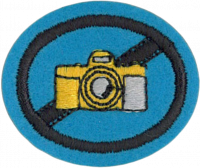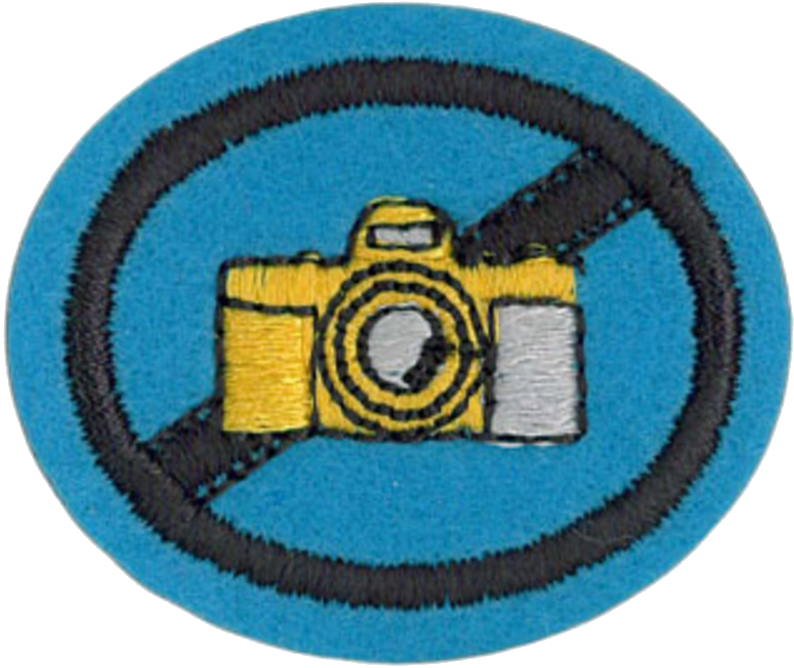Difference between revisions of "AY Honors/Photography/Answer Key/es"
From Pathfinder Wiki
< AY Honors | PhotographyAY Honors/Photography/Answer Key/es
(Created page with "</noinclude>") |
(Updating to match new version of source page) |
||
| Line 80: | Line 80: | ||
{{clear}} | {{clear}} | ||
| − | |||
{{clear}} | {{clear}} | ||
| Line 87: | Line 86: | ||
{{CloseReq}} <!-- 5b --> | {{CloseReq}} <!-- 5b --> | ||
{{ansreq|page={{#titleparts:{{PAGENAME}}|2|1}}|num=5c}} <!--T:31--> | {{ansreq|page={{#titleparts:{{PAGENAME}}|2|1}}|num=5c}} <!--T:31--> | ||
| − | <noinclude></noinclude> | + | <noinclude><div lang="en" dir="ltr" class="mw-content-ltr"> |
| + | </noinclude> | ||
| + | Direction of lighting, | ||
| + | Quality of Lighting, & Rule of Thirds | ||
| + | Quiz question (not really. . .) Should the sun be behind the subject you're photographing, beside the subject, or shining on the subject? | ||
| + | People used to think that you could only take good pictures if the sun was behind the photographer (YOU!) shining on the subject they were taking a picture. But that's not true. | ||
| + | </div> | ||
| − | + | {{clear}} | |
| − | |||
| − | |||
| − | {{clear}} | ||
{{clear}} | {{clear}} | ||
{{clear}} | {{clear}} | ||
| − | |||
{{clear}} | {{clear}} | ||
| − | |||
{{clear}} | {{clear}} | ||
| − | |||
{{clear}} | {{clear}} | ||
| Line 147: | Line 146: | ||
{{ansreq|page={{#titleparts:{{PAGENAME}}|2|1}}|num=5h}} <!--T:50--> | {{ansreq|page={{#titleparts:{{PAGENAME}}|2|1}}|num=5h}} <!--T:50--> | ||
<noinclude></noinclude> | <noinclude></noinclude> | ||
| − | |||
{{clear}} | {{clear}} | ||
| − | |||
{{clear}} | {{clear}} | ||
| Line 185: | Line 182: | ||
{{clear}} | {{clear}} | ||
| − | |||
{{clear}} | {{clear}} | ||
| − | |||
{{clear}} | {{clear}} | ||
Revision as of 01:05, 15 July 2022
1
Explicar los principios del funcionamiento de la cámara, qué hace el lente de la cámara, el efecto de la luz en la película sensible a la luz y la acción de los reveladores.
2
¿Qué se entiende por la «velocidad» de la película? ¿Qué significa ASA/ISO?
3
¿Cómo se relacionan la velocidad de obturación, apertura de lente y la velocidad de la película?
4
Mencionar los usos principales de la fotografía.
5
Tomar imágenes de diapositivas o impresas para ilustrar al menos ocho de las siguientes técnicas. Utilizar la comparación de imágenes para la ilustración:
5a
Enmarcado
5b
Estabilidad de la cámara
5c
Dirección de iluminación – frente, fondo, de un lado
Direction of lighting, Quality of Lighting, & Rule of Thirds Quiz question (not really. . .) Should the sun be behind the subject you're photographing, beside the subject, or shining on the subject?
People used to think that you could only take good pictures if the sun was behind the photographer (YOU!) shining on the subject they were taking a picture. But that's not true.
5d
Fondo borroso con objeto enfocado
5e
Regla de tercios
5f
Ángulo –nivel de los ojos, ángulo alto y bajo
5g
Nivel del horizonte
5h
Distancia de objeto – llenado del fondo
5i
El uso de las líneas principales
5j
Calidad de la luz - sombra, luz solar y hora del día
5k
Exposición correcta – sub-exposición, sobreexposición y exposición correcta
5l
El uso de flash – distancia apropiada y objetos que reflejan
6
Realizar una de las siguientes:
6a
Mencionar como las películas en blanco y negro se revelan en negativos e imprimir ocho de sus propias imágenes.
6b
Mencionar como se hacen las diapositivas y revelar un rollo de película.


